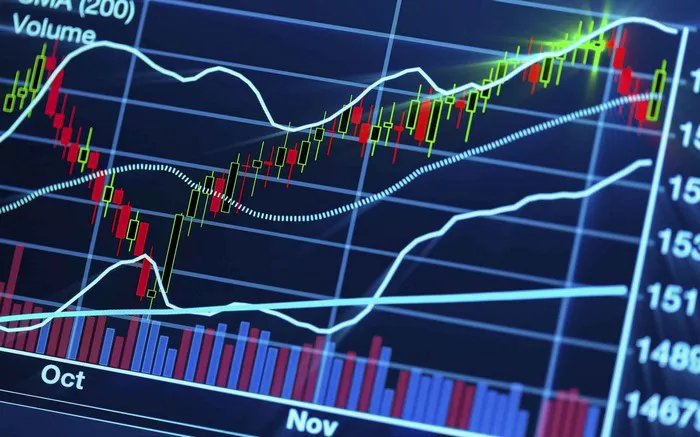South Korea is poised to maintain robust relations with the United States, irrespective of the outcome of next month’s elections. Finance Minister Choi Sang-mok stated that Korea and the US are essential economic and security partners, emphasizing continued investment and collaboration as mutually beneficial. In an interview with Bloomberg in Washington, Choi highlighted significant investments by South Korean firms in American semiconductor and battery manufacturing facilities.
Choi also addressed the recent depreciation of the Korean won, noting that government officials are monitoring the currency closely. With the American elections looming, uncertainties persist for the South Korean government. Regardless of whether Donald Trump or Kamala Harris emerges victorious, many South Korean companies anticipate heightened trade barriers, which may hinder their earnings projections, according to a recent survey.
Trump, the Republican nominee, has promised to increase tariffs on China, a vital trading partner for South Korea. Meanwhile, Harris has proposed raising corporate taxes, which could dampen demand for imports from foreign suppliers. The former president has openly criticized Biden administration policies that subsidize businesses to decrease reliance on China and boost domestic production. Notably, major South Korean firms, such as Hyundai Motor Co., have benefitted from the Inflation Reduction Act.
Additionally, Samsung Electronics is set to receive substantial funding for its Texas semiconductor plant under the Chips Act, a key initiative aimed at reducing foreign investment in China. Choi remarked that the US-China rivalry presents both risks and opportunities, and emphasized the importance of diplomatic efforts to navigate these challenges. He pointed out that ongoing discussions with Washington aim to reconcile differences over US policies.
Should the US tighten restrictions on South Korean companies following the election, Choi indicated that Seoul would respond strategically. “We will exert maximum effort using our diplomatic resources to alleviate any burdens on our business operations in the US,” he affirmed.
Choi underscored the importance of a rules-based global free trade system for Korea, particularly in light of Trump’s tariff proposals. The former president has labeled South Korea as a “money machine,” reiterating demands for Seoul to increase its financial contributions for the American military presence on the peninsula. Choi downplayed the significance of these remarks, stating that actual policies enacted post-election will be more relevant.
Since President Yoon Suk Yeol’s inauguration in 2022, security and economic ties between South Korea and the US have strengthened, especially as China has emerged as a competitive business adversary. This dynamic has prompted increased South Korean investment and production within the US, which has added pressure on the won, particularly as the Federal Reserve maintains high interest rates to combat inflation.
The won recently slipped past the 1,390 per dollar threshold, marking its lowest value since July and reflecting a 16% decline over the past three years. During his visit to the US for the annual meetings of the International Monetary Fund and the World Bank, Choi acknowledged market concerns regarding the rapid depreciation of the won compared to other currencies. “We are acutely aware of the market’s apprehensions about the speed of the won’s fluctuations,” he stated, vowing to closely monitor currency movements while remaining vigilant about volatility.
He noted that the dollar’s strength could lead to increased instability in global financial markets, necessitating potential multilateral stabilization measures. Currency fluctuations can significantly impact consumer prices and export costs in South Korea, which relies heavily on imports for energy, food, and raw materials, keeping authorities alert to possible interventions using its extensive foreign reserves.
The outlook for South Korea’s economy dimmed recently as the central bank reported minimal growth in gross domestic product for the last quarter. The 0.1% growth, lower than economists’ expectations, reflects a slowdown in export activity, compounded by high-interest rates that weigh on domestic consumption and construction.
Exports serve as the backbone of South Korea’s trade-dependent economy, and the Bank of Korea is anticipated to lower its 2024 growth forecast from the previous 2.4% during its upcoming rate decision. Earlier this month, the bank initiated a shift in policy, reducing its benchmark interest rate by 25 basis points to 3.25% due to easing inflation and property prices.
Economists surveyed by Bloomberg expect the central bank to maintain its current rate in November as it assesses the effects of its recent policy changes. The focus on economic growth is expected to sharpen, particularly given uncertainties related to exports, including ongoing conflicts in the Middle East.
Signs are emerging that the surge in global demand for memory chips, an area where South Korea holds a dominant position, is subsiding. Bloomberg Economics reported a real-term decline in semiconductor shipments last quarter, negatively impacting overall export growth, while price increases for memory-chip exports have also slowed.
“Volatility in the chip cycle poses a risk,” cautioned Dave Chia, an associate economist at Moody’s Analytics. “The latest export data indicates that relying on the external sector for growth is precarious.”
Choi acknowledged growing uncertainties surrounding export prospects and stated that the government is actively seeking solutions to mitigate these challenges. However, he expressed optimism regarding a rebound in private consumption, which is expected to receive a boost from the Bank of Korea’s recent rate cut. He also noted that construction is likely to recover from its downturn, contributing to projected economic growth.
“South Korea fundamentally relies on exports,” Choi concluded. “In this era of economic security, it is challenging to cooperate with nations lacking security collaborations. As US-Korea relations are rooted in a security alliance, we anticipate a significant increase in high-tech cooperation between our businesses in areas such as semiconductors, artificial intelligence, and space.”
Related topics:


